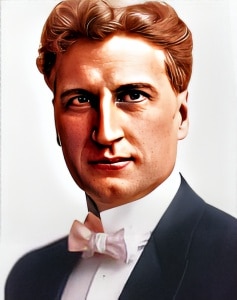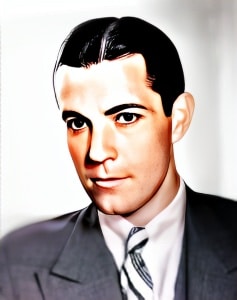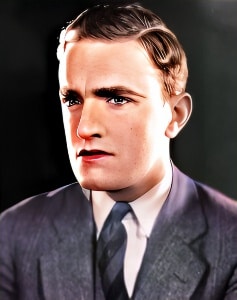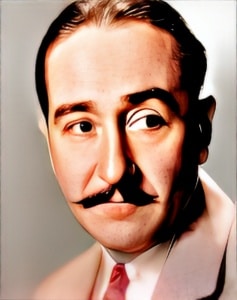 J. Frank Burke, born on July 23, 1874, in Denison, Texas, was a prominent figure in the early years of American cinema.
J. Frank Burke, born on July 23, 1874, in Denison, Texas, was a prominent figure in the early years of American cinema.
His career spanned the silent film era and the transition to sound films, showcasing his versatility as both an actor and director. During the early 20th century, the film industry was in its nascent stages, and silent films dominated the landscape. This medium relied on visual storytelling and nonverbal acting to convey emotions and narratives, demanding actors to engage with audiences primarily through facial expressions and physical movements. J. Frank Burke excelled in this art, demonstrating his adaptability and talent as an actor.
One of the remarkable aspects of J. Frank Burke’s career was his versatility in both acting and directing. As an actor, he appeared in a variety of silent films, including dramas, comedies, and character-driven roles. His filmography showcased his ability to engage with a diverse range of characters and narratives, highlighting his dedication to his craft. Burke’s performances were known for their authenticity and emotional depth, making him a compelling presence on screen.
In addition to his acting career, J. Frank Burke ventured into directing, demonstrating his multifaceted talents in the early film industry. As a director, he helmed several silent films, contributing to the evolution of cinematic storytelling. His work behind the camera allowed him to shape narratives and capture the essence of characters, enriching the cinematic experience for audiences.
One of his most notable works was his involvement as an actor in “ Hell’s Hinges” (1916), a silent Western film directed by Charles Swickard and produced by Thomas H. Ince. The film revolved around a morally corrupt town, Hell’s Hinges, and a preacher’s efforts to bring moral order to it. J. Frank Burke’s portrayal of a key character added depth to the film’s narrative and contributed to the emotional intensity of the story.
The transition to sound films marked a significant shift in the film industry, challenging many silent film actors to adapt to this new era. J. Frank Burke’s adaptability allowed him to navigate this transition successfully, emphasizing his commitment to his craft. This versatility and willingness to embrace change were essential qualities that contributed to his enduring presence in the world of cinema.
While his name may not be as widely recognized today as some of the leading actors and directors of his time, J. Frank Burke’s contributions to early cinema remain a testament to his talent and dedication. His work in the silent film era, his role in “ Hell’s Hinges,” and his successful transition to sound films underscore his adaptability and commitment to the evolving world of Hollywood.
In conclusion, J. Frank Burke was a multifaceted talent in the early years of American cinema. His career as both an actor and director showcased his adaptability and versatility, allowing him to excel in the transition from silent films to sound films. His performances, directorial contributions, and his role in “ Hell’s Hinges” continue to be celebrated as an integral part of the rich history of early Hollywood, highlighting his enduring presence in the world of cinema.




